 Everywhere you go people just seem to throw the word “luck” out there left and right. You’ll hear things like “He was lucky” or “Well, just my luck. It didn’t work out.”
Everywhere you go people just seem to throw the word “luck” out there left and right. You’ll hear things like “He was lucky” or “Well, just my luck. It didn’t work out.”
It’s as if there was some unforeseen force out there manipulating the circumstances without us having any control or choice in the matter—no matter what we do or think.
What Is All of This Luck Stuff Anyway?
Well, there are plenty of people out there that do believe in luck and will carry a charm or rabbit’s foot with them or even pay a psychic big bucks to change their luck. Without getting too sidetracked here from the topic, as a coach I am a firm believer that you can actually create your own luck. You can create your own opportunities and see them through.
One of my favorite books on the topic of luck, which I read several years ago, was by Alex Rovira and Fernando Trias de Bes, who are professors at Spanish B-school ESADE and authors of the book, Good Luck: Create the Conditions for Success in Life & Business, which has sold nearly 1 million copies worldwide since it was introduced in February, 2004. Both are partners at the market research firm, Salvetti & Llombart in Barcelona, Spain. Fernando Trias de Bes also co-authored Lateral Marketing with Philip Kotler (Wiley: 2003).
The three strategies, which both of these men recommend, is taking responsibility, learning from mistakes, and persevering. I will break down each one below.
- Taking Responsibility – Business owners who feel that they have had good luck also feel responsible for their own actions. When things go wrong or the outcome of any given situation is other than intended, they never point the finger of blame at external factors or other individuals. Instead, they look to themselves and ask, “What have I done for this to occur?” Then they act accordingly to solve the problem.
During the last recession that we had in the United States, I saw many small business owners blame the economy for their misfortunes. Even though the economy was very bad, still there were those companies who bulldozed ahead and succeeded. Some of the greatest inventions have come out of hard times, because this is when entrepreneurs look for opportunities. Not that these opportunities will ever fall out of the sky and hit them on the head, but they went out and looked for opportunities.
- Learning from Mistakes – Creators of good luck don’t see a mistake as a failure. Instead, a mistake is an opportunity for learning. Thomas Edison is the classic example. More than 10,000 attempts to invent the first long-lasting electric light bulb led to bulbs that only stayed lit for a few minutes. One of Edison’s colleagues asked him, “Mr. Edison, don’t you feel you are a failure?” Lacking any sense of vanity, he answered, “Not at all. Now, I definitely know more than a 10,000 ways how NOT to make a light bulb.”
Sure enough, just a few days later, he turned his inspiration into a practical concept. By the way, the very first light bulb was invented by Sir Joseph Wilson Swan, who demonstrated the theoretical concept but gave up trying to develop a practical application after only three attempts. By contrast, Edison made his own good luck and designed a working light bulb.
What Happens With Failure?
Entrepreneurs never complain about how they failed and how their parents always said that they would never amount to anything, etc. Entrepreneurs recognize that some of their businesses may not be successful. In fact, I know several entrepreneurs who failed at several businesses until succeeding. The good news is that you really only need ONE good successful business. So what does it matter if you fail at five before getting to that one? Ever hear of Colonel Sanders?
Of course you have! Colonel Sanders’ Fried Chicken. He failed at six other businesses before succeeding with that one. Would you call Colonel Sanders a failure? Absolutely not!
- Practicing Perseverance – Creators of good luck don’t give up or postpone. When a problem or situation arises, they act immediately to either solve it without delay, and they certainly don’t forget about it.
These business people don’t carry a list of “things to do” in their brain. Instead, they resolve problems and situations as quickly as possible. This enables their energy to be fully focused on their work and avoid conscious or unconscious distractions, which only generate inefficiency.
So, now what were you saying about good luck? Why not get out there and create your own luck? Yes, your own luck. Your own business. Your own life. It doesn’t matter what age you are!
‘Nuff said.


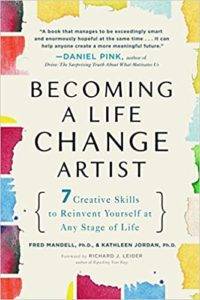



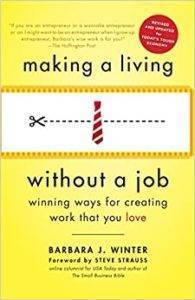



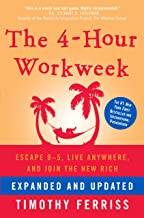


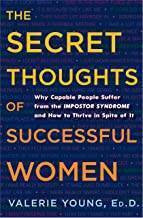


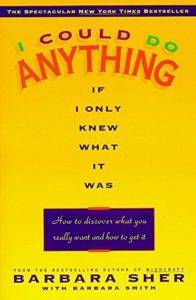

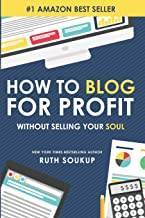
I think everyone is born with some sort of energy. In my humble opinion, I really believe that everyone creates their own luck through actions, thoughts and words. If you are positive daily by using affirmations, he or she will have great luck. On the other hand, if someone is always speaking negative comments and thinking negatively the person will push away the good luck. In summary, we all create our own luck either good or bad! Watch out…!
Good points! In other words, sometimes we set the stage with just our words and thoughts.
I believe that luck is just a matter of attitude. So yes, in a way, you create your own luck. If you have an attitude of perseverance, for instance, you are more likely to see things through to the end, which can seem like good fortune if it ends well! If you have an attitude of irresponsibility for your own actions, then everything will always be someone else’s fault or “bad luck.” I choose to believe that I have more control over my attitudes than my own “luck.” Then, I am never disappointed, or if I am, I am only disappointed in myself – not my misfortune. I know too many people who feel no control over their lot in life, and they are very sad (and unsuccessful) individuals indeed.
Many times I think luck is just tossed around. I always remind my coaching clients not to want more than they are willing to work for.
I believe in luck but I don’t believe that it’s the driving force behind every successful entrepreneurs. I still believe that hardwork and determination can lead to success. I’d be more inclined to believe in luck as a result of the laws of attraction. If we focus on positive thoughts, we’re likely to get positive results.
Exactly.